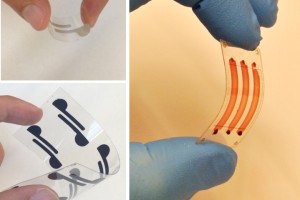
People in remote locations can now detect viruses and bacteria without leaving their homes.
Image: Scientific Reports
A team of researchers has developed a device that aims to provide adequate and efficient health care to those who live in remote regions with limited access to medical professionals.
The device utilizes biosensing to detected such viruses and bacteria as HIV and Staph from remote locations. Patients simply take a small blood or saliva sample and apply it to a film made of cellulose paper—each of which is designed to detect a specific bacteria or virus.
This from Popular Science:
The patient would then use a smartphone app to take a picture of the sample and send it to a doctor for diagnosis. Medical professionals, no matter where they are, would receive the cell-fies and look at the bacterial biomarkers in the sample to diagnose the disease. The film is sensitive, disposable, and much cheaper to produce than similar biosensing films.
“Our paper microchip technologies can potentially have a significant impact on infectious diseases management in low- and middle-income countries where there is limited laboratory infrastructure,” said co-author Hadi Shafiee in a press release.
The work was published in the journal Scientific Reports.
The properties of biosensing go beyond that of medical applications. Head over to the Digital Library to read more on the topic! And make sure to check out this recently published open access article that links biosensing, biofuel, and battery.

